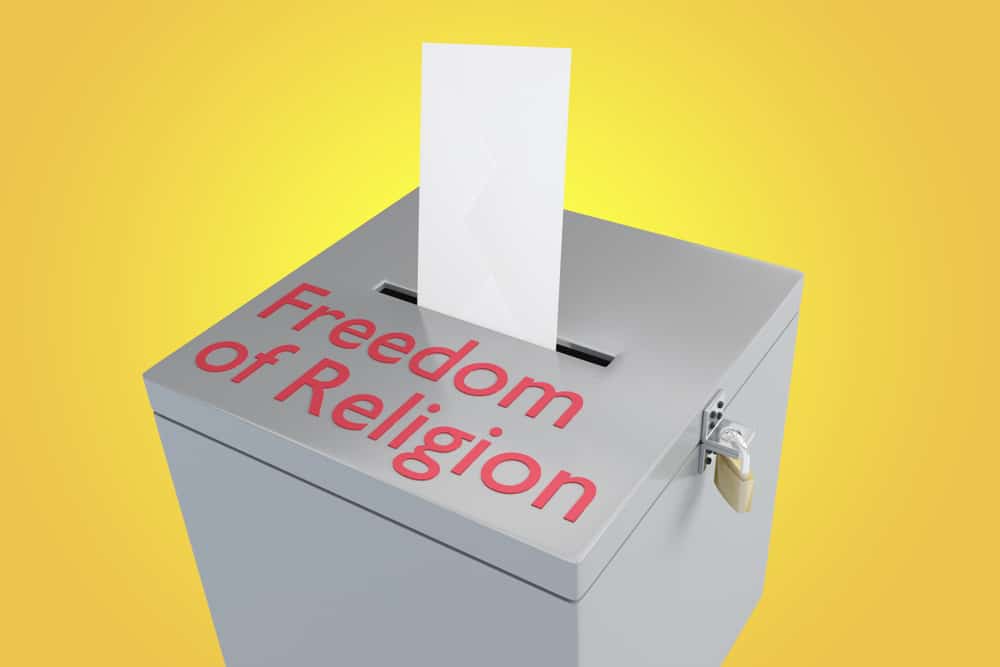
A philosophical belief discrimination can be described as a situation where a person is treated differently because of their religion or belief. The biased treatment can be due to an individual choice or as a result of a policy. The treatment does not have to necessarily be intentional to be deemed as a discrimination.
What the Equality Act says about religious or belief discrimination
According to the Equality Act 2010, a person must not be treated differently because:
- They are or are not of a particular religion
- They hold a certain philosophical belief
- You think someone is of a certain religion or belief
- They are connected to someone who has a religion or belief
The Equality act covers any religion, whether it is an organised one like Christianity, Islam or Hinduism or a small unstructured religion like Paganism or Rastafarianism. The act also covers lack of religion or a belief.
In the Equality Act religion or belief can mean any religion, for example an organised religion like Christianity, Judaism, Islam or Buddhism, or a smaller religion like Rastafarianism or Paganism, as long as it has a clear structure and belief system.
For example: the act protects Christians if they are being discriminated due to their belief in Christianity. The law also protects other religions in the same way.
Different types of religious or belief discrimination
Direct discrimination
This is a case when someone treats you worse than other people because of your religion. For example, a bank refusing a loan to Muslims.
Direct discrimination can also occur even when discriminator and the person being discriminated both hold the same beliefs and religion. For example:
A Hindu businessman interviews two women for a job interview where one woman is a Hindu and the other is Christian. The man gives the job to Christian women even though the Hindu woman was a better candidate, after considering that all his clients are Christians and hence they will prefer the same.
Indirect discrimination
Indirect discrimination is usually a result of a policy or way of working of an organisation that applies to everyone, but affects you, because of your belief or religion. For example, if you are Muslim and leave early on Fridays to observe Namaz. Your manager has changed the weekly team meeting from Tuesday to Friday and hence you are often absent in those meetings.
While indirect discrimination can be lawful, the employer should be able to prove that the policy, or that way of working, is important for the way the business is operating.
Can you object to a workplace uniform policy if it is against your religion?
Everyone has a right to follow their religion as per the Human Rights. This implies that you have a right to wear or not wear particular articles or clothing within the workplace, to show your belief, even if your other colleagues do not. An example of this would be people wearing a crucifix to support Christianity.
It should however be noted that an employer has a right to prevent you from wearing certain articles of clothing if it is important for the role you are performing at the job. For example, a teacher may be asked to stop wearing a floor length garment to prevent trip hazards.
However, a Sikh man working in a food preparation department who is denied wearing a turban because no headgear is allowed would not be justified.
Harassment
Harassment in the workplace occurs when someone makes you feel humiliated, embarrassed, or offended.
It should be noted that harassment can never be justified. However, if the organisation can prove that it did everything possible to prevent people from behaving like that, you will not be able to make a claim against the employer. You can make a claim against the harasser.
Victimisation
This is a situation in which you are treated poorly because you have filed a complaint of religion discrimination or you are supporting someone who has made such a complaint.
When is discrimination lawful?
A philosophical discrimination may be deemed lawful if:
- Belonging to a particular religion is essential for the job. This is known as occupation requirement.
- An organisation is trying to take a positive step to encourage a group of people with a religion that is under-represented in the society
- A faith school appointing teaching staff requiring the teachers to follow a certain faith
If you think you have been discriminated on the grounds of religion or belief, you may get in touch with a tribunal claim lawyer and get sound advice on your rights and privileges.
Tom Street qualified as a solicitor in 2003 and has over 20 years experience in employment and litigation law. He studied law at the University of Manchester before undertaking the legal practice course at the College of Law in Guildford, going on to complete his legal training at a firm in Chancery Lane, London. Once fully qualified, he moved to a niche litigation practice in the City of London.
In 2010, Tom set up his own legal practice, Tom Street & Co Solicitors and as part of this, in accordance with his strongly held objective to provide everyone with an easy pathway to justice he established the online portals Do I Have A Case? and Tribunal Claim. These websites are trading names of Tom Street & Co Solicitors.

